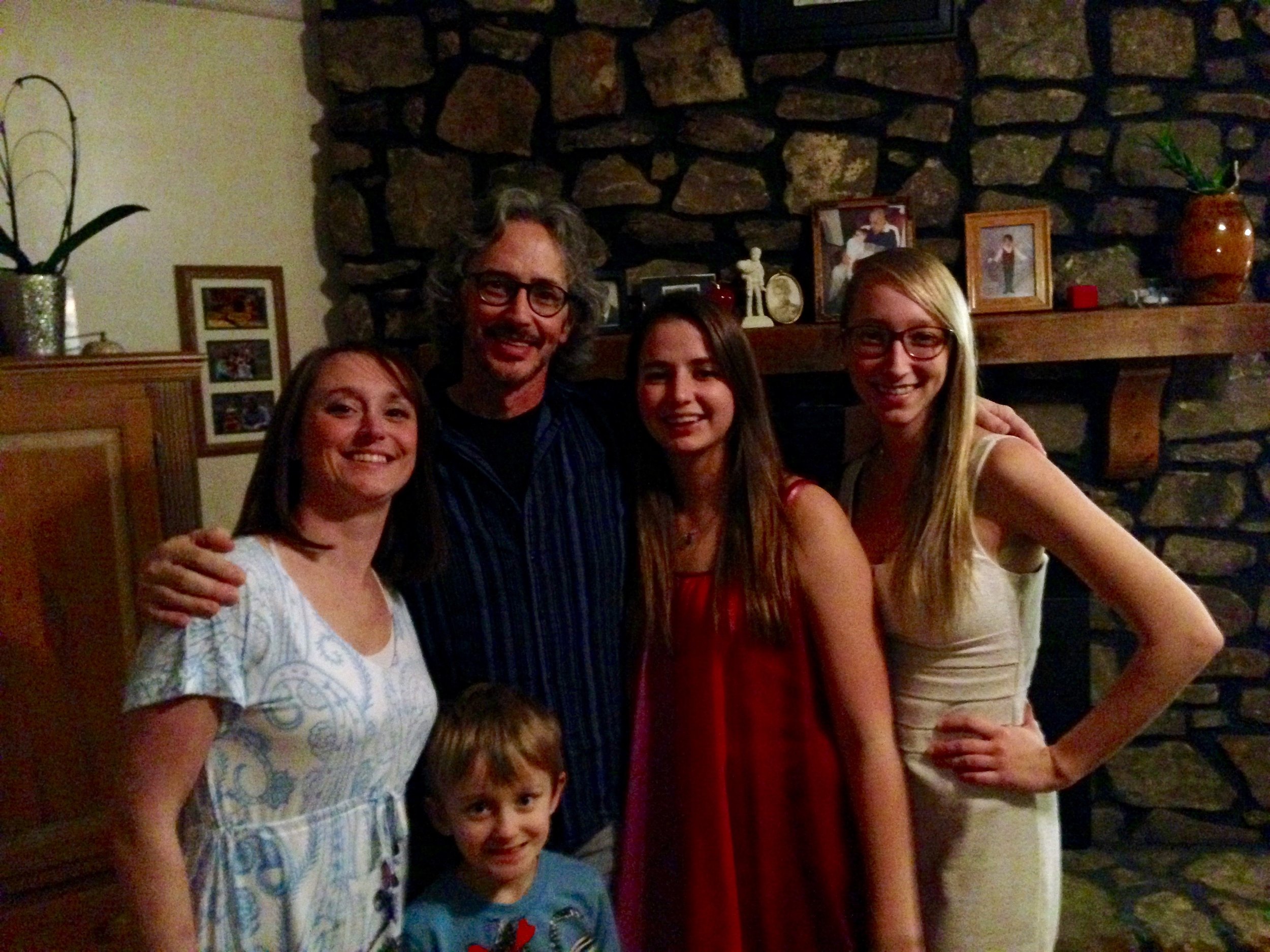30 Years in Recovery
June 1, 2015 | Kelly G. Wilson
I could choose a lot of days over the course of my life that were turning points, but this particular day is big. Today, June the 1st, marks 30 years of continuous sobriety.
The last day of May, 1985, I was 30 years old. I had lived off the grid since I moved from my parent’s home in 1971. My life up to that point had been a series of drunken, drugged, often suicidal days. I had dropped out of high school, had never worked regularly, and was frequently homeless. Car wrecks, DUI’s, guns, theft, living in fear, deals gone bad, jails, blackouts, overdoses, and trips to emergency rooms were simply part of life. Joni Mitchell had it right, red water in the bathroom sink, bashing in veins for some kind of peace. That was my life.
In February of 1985, I tried to turn myself in to King County Detox in Seattle, Washington. Detox would not have me because I was suicidal. I landed in the Harbourview Hospital Emergency Room. Drunk and bloody from a beating I had taken in a blackout the night before, I lay in the hall in four-point restraint all night. The next morning, a psychiatrist had me moved to Northwest Evaluation and Treatment, a locked psychiatric facility. I had been rehearsing suicide for a long time. There was simply no more room for me in this life. I had been waiting for years to summon either the will or apathy to end myself, and with what little fear I had left, I could see that I had arrived.
I took a very, very hard detox, sick and shaking, feeling as though the muscles in my ribcage would crack my ribs. Detoxing, I faced, unmedicated, into my epic failure as a man, a brother, a husband, a son, a father. I was not even a successful criminal. Wherever I went, ruin and wreckage followed.
I wanted to at least be the guy pictured in this old photo with my then 4-year old daughter Chelsea, a mess, but fundamentally loving.
But even being that guy, an irresponsible, but loving mess, was beyond my capacity. I could not even do that.
After a month in the hospital in Seattle in 1985, they found me a charity bed in an old school residential treatment facility at a decommissioned Nike Missile Base on the Olympic Peninsula where I spent another month. I recently hunted the place down and it is still there: The Olalla Guest Lodge. Not one of those fancy treatment centers. You had to pick up after yourself, sweep floors, and wash dishes.
These two months were the first sustained sobriety I had experienced since leaving home in 1971. My mom and dad took Dianna and I into their home in Spokane. We both got minimum wage jobs and began the slow trek towards a life worth living.
Two years later, I completed an Associates Degree at Spokane Falls Community
College. Two years after that, I graduated Summa Cum Laude from Gonzaga University.
Five years from that first summer sober, after one year in grad school, I was teaching undergrad summer session courses in psychology at the University of Nevada, Reno.
During my time at Reno, Dianna and I lived a quiet and hardworking life. We got educated, got employed, and had a couple babies. We became
grownups.
And that little girl, who I had all but abandoned, gave me another chance.
She wanted me there when she graduated from high school, got married, and I was there for that sumptuous week shortly after my grandson, Fletcher, was born.
I have had the chance to travel and connect with thousands of people, participating in research projects, conferences, and workshops all over the planet.
Have written books that have made way for many other books.
I have had a chance to be a teacher and a mentor.
A chance to be a father.
Together, my wife Dianna and I, with the help of an uncountable number of kind people, have made a life that I could not have imagined possible.
These days, I am learning perhaps the hardest lesson. I am learning to treat myself with the persistent loving kindness that has become second nature in my work with others. This practice with myself has softened me still more with others.
And, as I shift into the last few years as a full-time academic, and prepare for the next phase of my life, I am having the chance to teach this deepest kindness to others. To help them learn to care for themselves, to give themselves a chance for the deepest kindness.
Today, I am sitting on my altogether Zen back porch, reflecting. Back when I was in rehab at The Olalla Guest Lodge in the winter of 1985, there was an old fellow who had started the recovery center there in 1969. He had the most improbable name: Faust Yeats! He was an old guy in his 80s if I remember rightly. He no longer worked actively at the treatment facility but still lived on the compound. Whenever there were evening meetings, he would talk….long and loud. You could tell that the drug and alcohol counselors would have liked him to talk less. I recall one evening Faust Yeats standing up shouting at us, shaking his cane, menacing. “Go ahead,” he said. “Try to imagine the life that is possible for you!” “Do it!” he shouted as he shook his cane in the air. “Not in your wildest drunken dreams. Could you imagine what is possible!”
At the time, I thought he was certainly crazy.
I got out of treatment after a month, moved to Spokane, and stumbled a few times. But on June 1st, 1985, I made a deal with the universe. I agreed. I said yes in the most radical way. I became willing to open up to what was in front of me and to, one day at a time, do the next right thing.
In retrospect, I think Faust was underselling the possibilities. When I consider how very, very close I came to ending that bitterly cold winter of 1985, there is no possible way I could have foreseen what life had in store for me.
I am so, so glad I stayed.
For all who suffer. I hope that you see some small light in all this. I hope that you see that you too might be the recipient of unexpected good fortune, of redemption, of many, many second chances, ending in the deepest kindness.
Namaste, Y’all, from my back porch, Oxford, Mississippi, June 1, 2015
Kelly
Kelly G. Wilson academic homepage
Consulting Page
Twitter:













